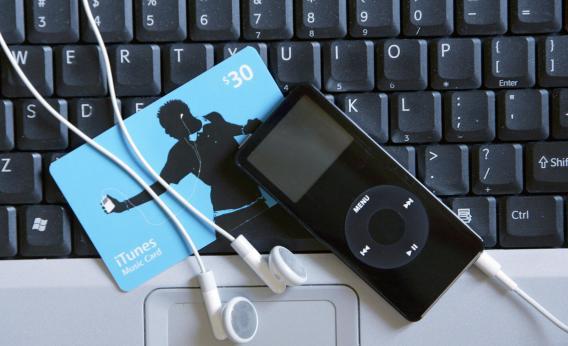On iTunes, Adele’s “Rolling in the Deep” will cost you $1.29.
Or, you can click over to the website ReDigi and pay 79 cents, or about two-thirds the iTunes price. That’s because ReDigi lets people buy and sell “used” songs from iTunes. The copies of “Rolling in the Deep” for sale on ReDigi were uploaded by people who didn’t want them anymore, in exchange for credits to get other songs from ReDigi. This is good for people who want to keep their music collections fresh on the cheap, but not so good for music companies that want to get a cut every time someone purchases a song.
So last month, EMI, which owns Capitol Records, sued ReDigi and asked a court to close the site while the case proceeds. Yesterday, according to ReDigi, a judge denied that request. In a press release, ReDigi calls this “an exciting step forward for ReDigi’s and the purchasing public’s fight to keep consumers’ intrinsic and lawful ownership rights to their digital property intact at a time when Capitol Records is fighting desperately to confiscate these rights.”
CNET’s Greg Sandoval explains:
ReDigi scans a user’s computer hard drive to obtain the copy of the song the person wants to sell and then deletes it from the seller’s hard drive. The startup, which launched a test version of the service last fall, asserts that the sale of digital music is protected under the same “First Sale” doctrine that protects the sale of CDs, vinyl records, DVDs, and other physical goods.
Ossenmacher has said the company discourages the illegal copying of music with a verification system, but he has also conceded that there’s no way for ReDigi to guarantee that users who resell music through his service haven’t made copies of their songs and stored them on some other hard drive.
EMI said that for ReDigi to operate its business, it must make copies of the music it finds on hard drives and this makes them unauthorized copies, a violation of copyright law. For this reason, there can be no claim of “First Sale” rights because the songs being sold are not legally obtained.
At the heart of this discussion is what, exactly, constitutes ownership and “copying” now that previously physical objects like records have been transformed into digital items. (Simson Garfinkel considered the question of possession and the cloud in Technology Review in the fall, but unfortunately it’s behind a pay gate now.)*
*Correction, Feb. 8, 2012: This post originally misspelled the first name of Technology Review contributor Simson Garfinkel.
